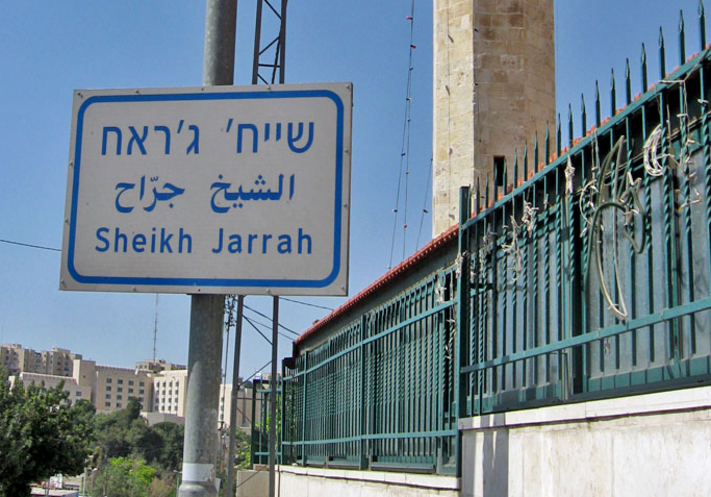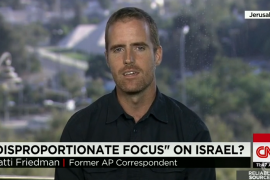One of the ways the Guardian has obfuscated Palestinian responsibility for the violence in Jerusalem, and the conflict between Hamas and Israel, is by framing the potential eviction of a few dozen Palestinians in Sheikh Jarrah – due to their failure (over decades) to pay rent – as the initial “Israeli” provocation – one, the narrative goes, which incited riots at the Al-Aqsa Mosque and, ultimately, lesd to the Hamas rocket attacks.
Whilst some Guardian op-eds have gone as far as to characterise the evictions as part of Israel’s ethnic cleansing of Palestinians from east Jerusalem, an intellectually unserious charge contradicted by population statistics demonstrating an increase in the percentage of Palestinian residents in that part of the city, most reports have described the evictions as a pernicious Israeli “plan”.
The “tinder” for the war, a May 11th Guardian editorial explained to readers, included “plans to evict dozens of Palestinians from the homes they have lived in for decades in Sheikh Jarrah in occupied East Jerusalem, giving them to Jewish settlers”. Israel, their Jerusalem correspondent wrote, “has faced mounting international criticism” of “the planned evictions”.
In characteristing the situation in Sheikh Jarrah as an Israeli provocation, one would come to the erroneous conclusion that that the evictions represent a policy decision by Israel’s government, rather than the decades-long private legal case – one that will be adjudicated by Israel’s internationally respected Supreme Court. As CAMERA and others have clearly demonsrated, this is a civil dispute over ownership rights and rent, and the Israeli government is not a party to the litigation.
Moreover, it’s telling that many of those demanding that ‘Israel’ stop Palestinian evictions in Sheikh Jarrah appear to be, in effect, suggesting that the government overrule decisions of the state’s independent judiciary – many of same people who previously criticised the ‘right-wing’ government for trying to undermine the court’s independence. Interestingly, the Guardian itself warned in a 2017 editorial that “there is an increasing intolerance from the ethno-nationalist end of Israeli politics that threatens to undermine political freedom and judicial independence.”
However, such counter-factual narratives also serve an even more pernicious end: to obfuscate Palestinian responsibility for the initial rioting at al-Aqsa on May 7th, which was planned in advance by Palestinians who had stockpiled stone slabs, rocks and fireworks around the holy site, as well as Hamas’s decision to fire rockets at Israel’s capital, by framing it as the inevitable reaction to Israeli provocations.
Such predictable storytelling by reporters who just can’t seem to break free of the impulse to attribute an Israeli root-cause to every bad Palestinian decision, including acts of violence, reflects not only a cognitive failure, a refusal to assign Palestinians moral agency, but also a professional failure – a laziness which prevents them from digging deeper, to determine the myriad of factors at play within Palestinian society that help explain why Palestinian violence ‘erupts’.
Such an investigation, within the current context, would delve into the role of increased Palestinian Authority incitement in the days leading up to the riots, the decision to cancel Palestinian elections, and the broader rivalry between Hamas and Fatah for the hearts and minds of the Palestinian street.
As former AP Jerusalem correspondent Matti Friedman explained, “If you follow mainstream coverage, you will find nearly no real analysis of Palestinian society or ideologies, profiles of armed Palestinian groups, or investigation of Palestinian government”. “Who they are”, he added, “what they want” and the decisions they make are not important: The story, he concluded, “mandates that they exist as passive victims” of Israel, the eternal antagonist in their tall tale.
Related Posts
- Sheikh Jarrah: The Facts (CAMERA)
- Guardian promotes libel about fire near Al-Aqsa (CAMERA UK)





